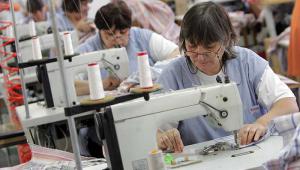The think-tank said that after a period of relatively robust growth, the region has been hit by three external shocks – the fall in commodity prices, the Chinese slowdown, and the beginning of monetary policy normalisation in the US.
Combined with what the think-tank called “a backlog of urgently needed structural reforms”, these factors had slowed the rate at which living standards in the region were catching up with advanced economies.
“Policymakers need to focus on a more inclusive concept of productivity growth,” OECD secretary general Angel Gurría said. “Better education, health and infrastructure, combined with pro-competition structural reforms, can deliver win-win results, so that everyone in Latin America can benefit from the greater wealth created.”
The OECD report examining the region highlighted that income inequality was 65% higher than in high-income countries, 36% higher than in East Asian countries and 18% higher than in sub-Saharan Africa.
Higher economic productivity will be crucial in closing this gap, the report said. Workers in the region currently work more than the OECD average but have lower levels of productivity.
One problem was that many jobs across the region were characterised by low pay, strenuous or hazardous working conditions and long hours, particularly for those employed in the informal economy.
To tackle this, governments should step up active labour market programmes, enhance social protection schemes, safety standards and labour regulations and improve the enforcement of employment laws.
Developing the skills of young people to prepare them for lifelong learning was also crucial to both increase social cohesion and labour productivity, the report said. Currently, more than half of 15-year-olds in Latin America do not acquire the fundamental skills needed to perform in the labour market and student success is more dependent on socio-economic background than the average for OECD countries, it noted.
A separate report by the World Bank, also released yesterday, found that the number of young people not in education or work in the region had grown to more than 20 million people between the ages of 15-24, of which two-thirds were women.
The bank recommended implanting well-targeted conditional cash transfers to encourage more people into work or education, as well as information packages to raise awareness of the benefits of education and tutoring or entrepreneurship programmes.
“Countries that offer high-quality education to an expanding young population and also have dynamic, well-functioning labour markets will grow and reduce poverty more quickly,” said Jorge Familiar, World Bank vice president for Latin America and Caribbean.
The OECD also called on the region’s governments to reduce barriers to entrepreneurship, trade and investment, strengthen the rule of law and stamp out corruption, encourage innovation and upgrade their infrastructure.














